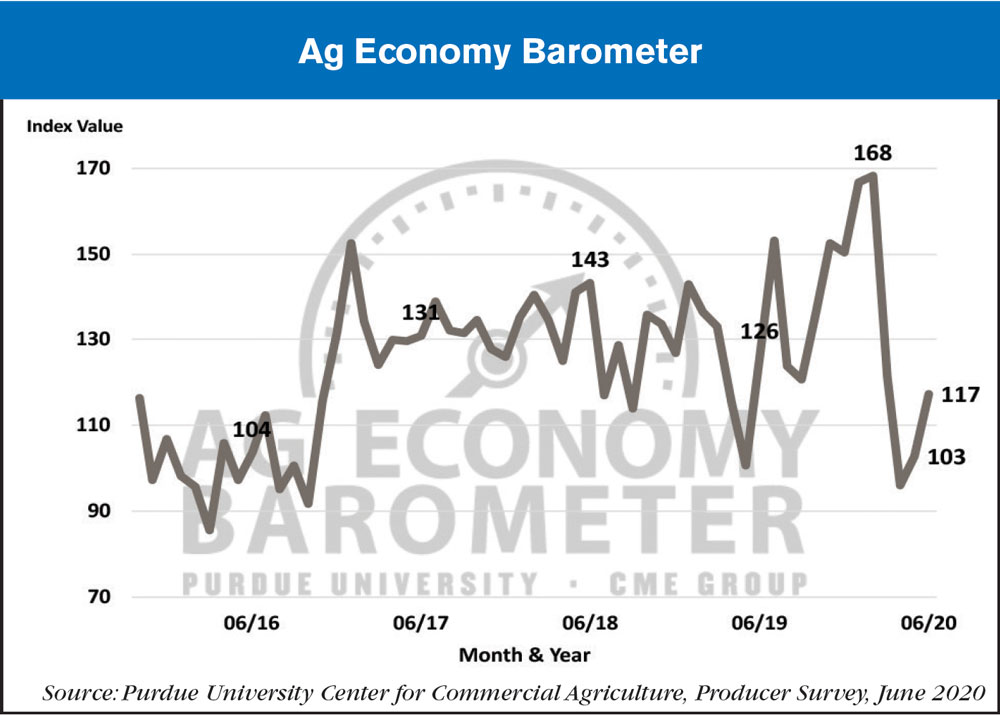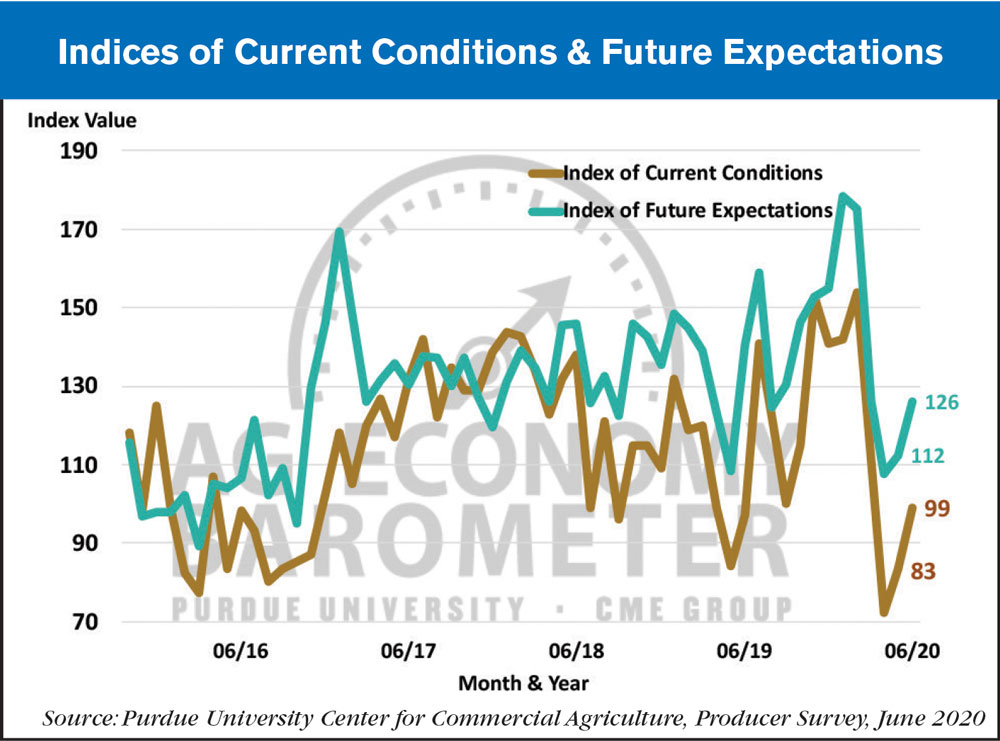Farmer sentiment improved again in June as the Purdue University-CME Group Ag Economy Barometer rose 14 points to a reading of 117. The barometer’s rise was fueled by improvements in both the Index of Current Conditions which rose to a reading of 99, 19% higher than a month earlier, and the Index of Future Expectations which climbed to 126, 12% higher than in May. The improvement in farmer sentiment left the Ag Economy Barometer 7% below one year earlier, while the Index of Future Expectations was still 10% below its June 2019 level. The Index of Current Conditions, however, was 2% higher than in June 2019, likely reflecting considerably improved spring planting conditions throughout much of the nation, in addition to support from USDA’s Coronavirus Food Assistance Program (CFAP). The Ag Economy Barometer is calculated each month from 400 U.S. agricultural producers’ responses to a telephone survey. This month’s survey was conducted from June 22-26, 2020.
Farmers’ perspective regarding whether or not now is a good time to make large investments in their farming operation improved markedly over the last two months. The Farm Capital Investment Index recovered to a reading of 60 in June, 10 points higher than a month earlier and 22 points higher than the low reached in April. The recovery still left the index 12 points below the 2020 high established back in February.
Farmers’ short-run outlook for land values improved markedly over the last two months. The percentage of respondents expecting land values to decline over the next 12 months fell to 21% in June, down from 29% in May and 35% in April. The shift in perspective on farmland values was even more pronounced when farmers were asked for their opinion on farmland values five years into the future. Fifty-five percent of respondents said they expect farmland values to rise over the next five years, up from just 40% that felt that way in May. Finally, for the second month in a row, we asked farmers who rent farmland if they expect to ask their landlords to reduce their 2021 farmland rental rate as a result of COVID-19. In May, 27% of respondents said they expected to ask for a rent reduction next year. In June, however, just 17% of farmers responding to the survey said they expect to ask for a rent reduction in 2021.
Concerns about COVID-19 are leading to changes in business practices throughout the U.S. economy. To learn more about how business practices among farmers are changing, we asked farmers about conducting business online and their willingness to attend in-person educational programs. Four out of ten respondents on the June survey said they have increased the amount of business they conduct online, and just over half (53%) of respondents said they are less likely to attend in-person field days or educational programs during the remainder of this year due to concerns about COVID-19.









